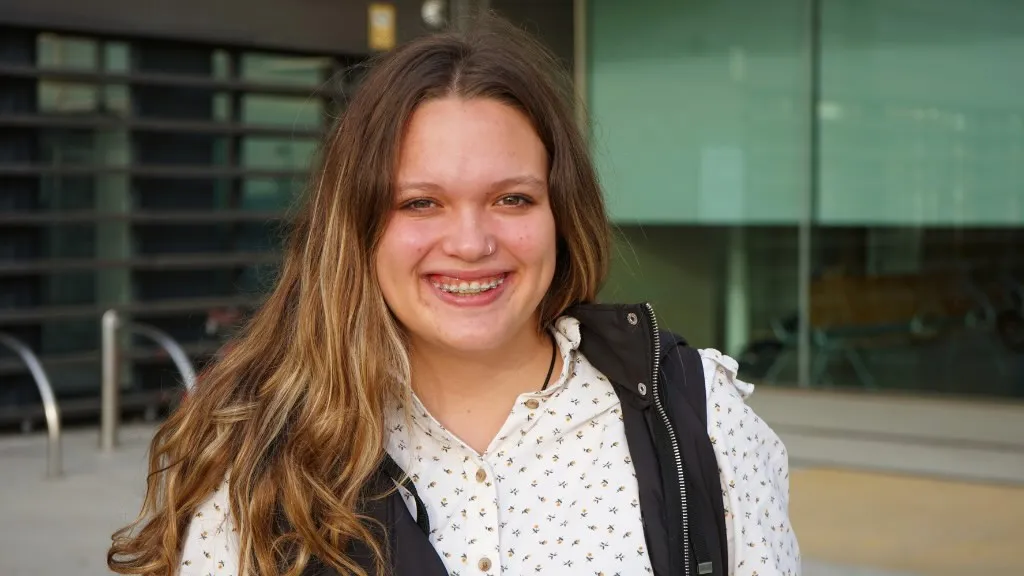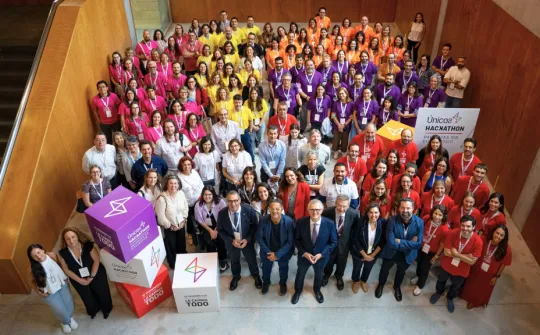"Since I was diagnosed with PCOS, I've never felt as well cared for as I do now, thanks to the Spiomet4health clinical trial"

Paula Romero, a participant in the Spiomet4health European clinical trial on polycystic ovary syndrome, explains her experience.
Paula Romero, 19, got her period when she was 12, and after more than a year and a half of irregular periods and severe pain, her gynaecologist diagnosed her with polycystic ovary syndrome (PCOS). Supply shortages of the medication she had been taking up to then, coupled with the pandemic and confinement, led Paula to visit a number of specialists. She was ultimately prescribed contraceptives which, in addition to aggravating her symptoms, caused very drastic weight changes.
"With the first birth control pills I gained weight; they changed them and then I lost so much weight I was down to 50 kilos. Finally, after more than a year and a half of this I decided to stop taking the pills and accept that I wouldn't get my period. I couldn't take it any more". During the time when she was not receiving any treatment, Paula became more fatigued and anxious and this had a direct impact on her schoolwork and her relationship with her family.
PCOS affects between 5-10% of women of reproductive age and can cause increased body hair, acne, irregular menstrual periods and fertility problems.
"I found out about the Spiomet4health clinical trial because my aunt saw a poster in the hospital and passed it on to me. I knew right away that I wanted to sign up. I've been in the trial for three months now and I'm very happy". Paula notes that she feels listened to and accompanied at all times by the professionals leading the study. "This is the first time I’ve had so many tests and that they’re really paying attention to the symptoms and the pathology. It makes a big difference in your life when they listen to you and you can live without intense pain".
In fact, after starting on the trial she had an episode of severe pain associated with her period and when she went to the emergency room at the hospital’s Women's Department they found a 4 cm ovarian cyst. "I have a high tolerance for pain, but last month I fainted. I feel very calm because at the emergency room and then two weeks later at my office visit I’ve been well cared for by the entire gynaecology team".
The Spiomet4health clinical trial  led by Dr. Lourdes Ibañez, lasts for one year and the patient is followed for six months afterwards to verify the changes that occur during and after the medication. The aim is to recruit a total of 70 patients in Barcelona and 46 in Girona. The results will serve as the basis for a phase III clinical trial to apply this new approach across Europe. It is estimated that the subsequent implementation of the treatment, if effective, will save the healthcare system between 500 million euros and 1 billion euros every year.
The recruitment phase is still open so if you are interested in participating or know a girl aged 12 to 24 with this condition, do not hesitate to contact the Spiomet4health project.




